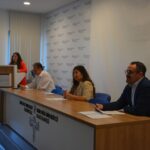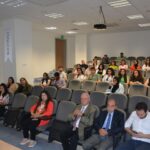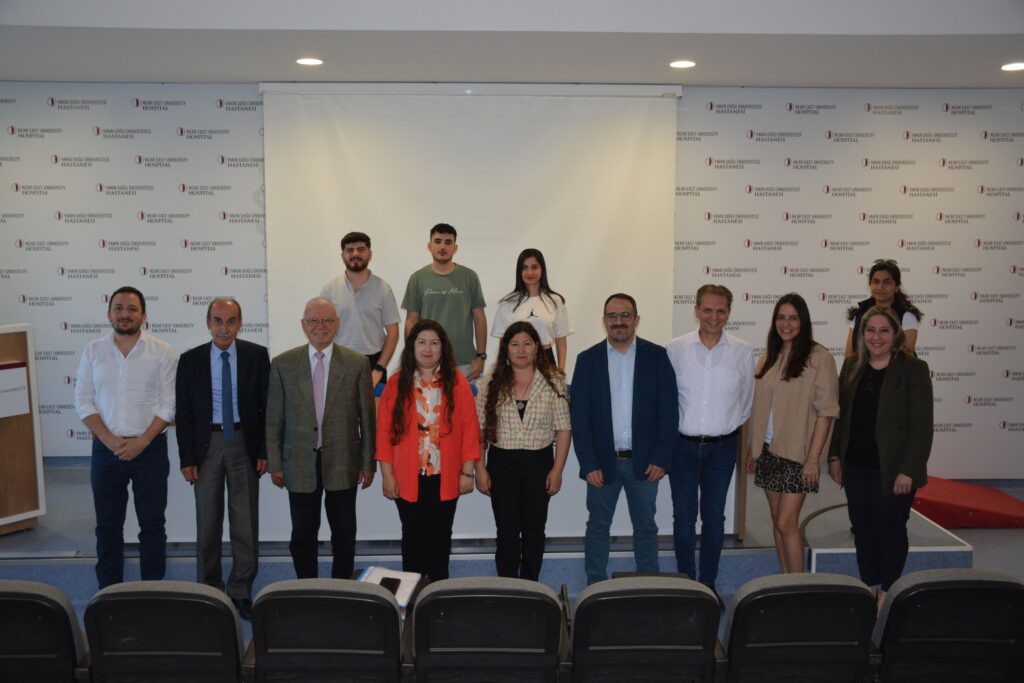
The “Interdisciplinary Research and Ethics in Higher Education” panel organized by the Near East University Graduate Education Institute brought together many academicians who are experts in their fields. The panel emphasized the importance of the ethical dimension in interdisciplinary research and scientific studies in higher education, and discussed how innovative solutions to social problems can be produced through collaborative project work and how to contribute to knowledge production on a global scale.
The opening speech of the panel was delivered by Near East University Graduate Education Institute Director Prof. Dr. Kemal Hüsnü Can Başer and moderated by Near East University Computer and Instructional Technologies Education Department Head and Graduate Education Institute Deputy Director Prof. Dr. Fahriye Altınay and Near East University Graduate Education Institute Deputy Director Prof. Dr. Umut Aksoy.
In the panel, President of the Near East University Center of Excellence and Advisor to the Chairman of the Board of Trustees, Prof. Dr. Evren Hıncal, Head of Social Research and Development Center Prof. Dr. Zehra Altınay and Head of Strategy and Energy Policies Research Center Assoc. Prof. Dr. Sait Akşit made a presentation.
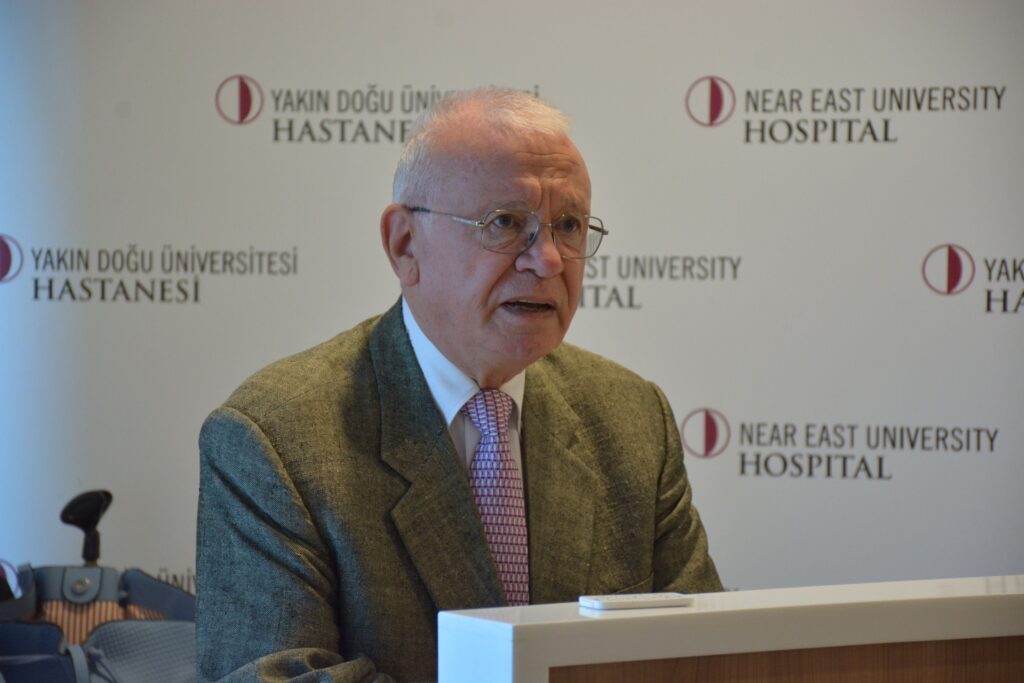
Prof. Dr. Kemal Hüsnü Can Başer: “We share knowledge and experiences, we have the opportunity to follow current developments and gain new perspectives.”
Reminding that the Near East University Graduate Education Institute has so far given more than 5 thousand graduates in more than 150 programs, Near East University Graduate Education Institute Director Prof. Dr. Kemal Hüsnü Can Başer underlined that they have an active institute. Prof. Dr. Kemal Hüsnü Can Başer, making the opening speech of the panel, said, “These events allow academics and experts from different disciplines to come together and share their knowledge and experiences. In this way, our students and academic staff have the opportunity to follow the most current developments in their fields and gain new perspectives.”
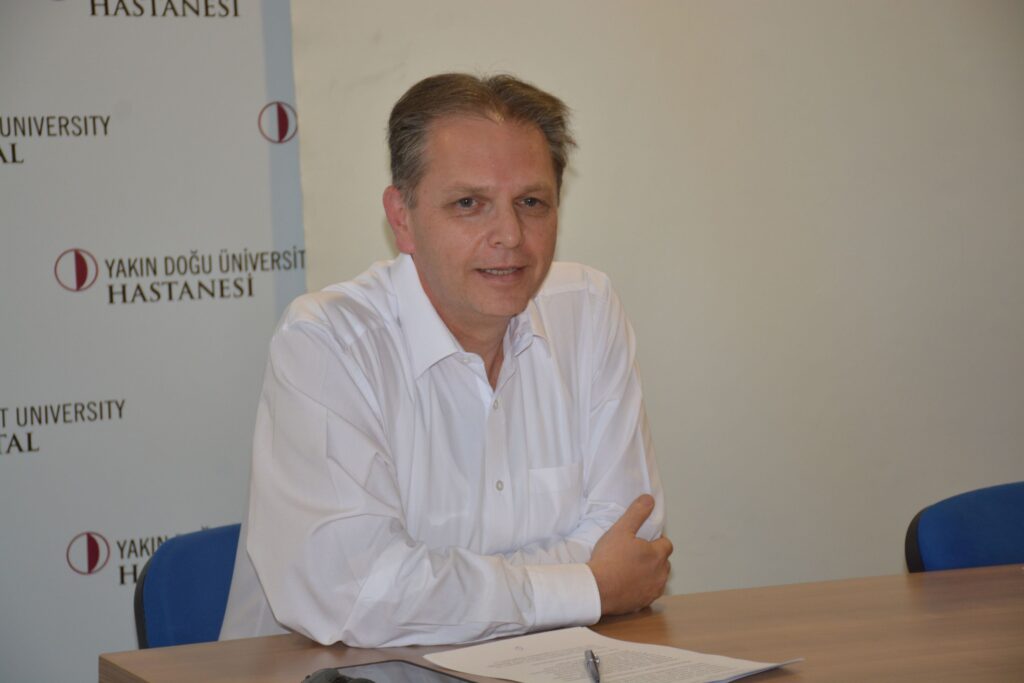
Prof. Dr. Evren Hıncal: “Establishing appropriate communication channels, encouraging mutual understanding and cooperation, determining common goals and meticulously applying research ethics play an important role in interdisciplinary studies.”
In the first presentation held within the scope of the panel, where how to carry out research and interdisciplinary studies was discussed, Near East University Center of Excellence Head and Advisor to the Chairman of the Board of Trustees, Prof. Dr. Evren Hıncal emphasized that appropriate communication channels should be established, mutual understanding and cooperation should be encouraged, common goals should be determined and research ethics should be applied meticulously. Stating that they pioneer interdisciplinary studies at the Center of Excellence, which he chairs, Prof. Dr. Evren Hıncal stated that they aim for performance-enhancing and quality studies in education, research and scientific fields. Stating that the studies carried out with many stakeholders at home and abroad, Prof. Dr. Evren Hıncal said “Sharing information and the respect that people have for each other is actually what we call ethics. In these works we carry out with stakeholders, production is our most important source of motivation. We get strength from science and knowledge.” Stating that the panel organized with versatile participants actually represents a very good example of interdisciplinary studies, Prof. Dr. Evren Hıncal said, “By making holistic presentations with participants from different fields in this event, we have actually exhibited an example of a connected work.”
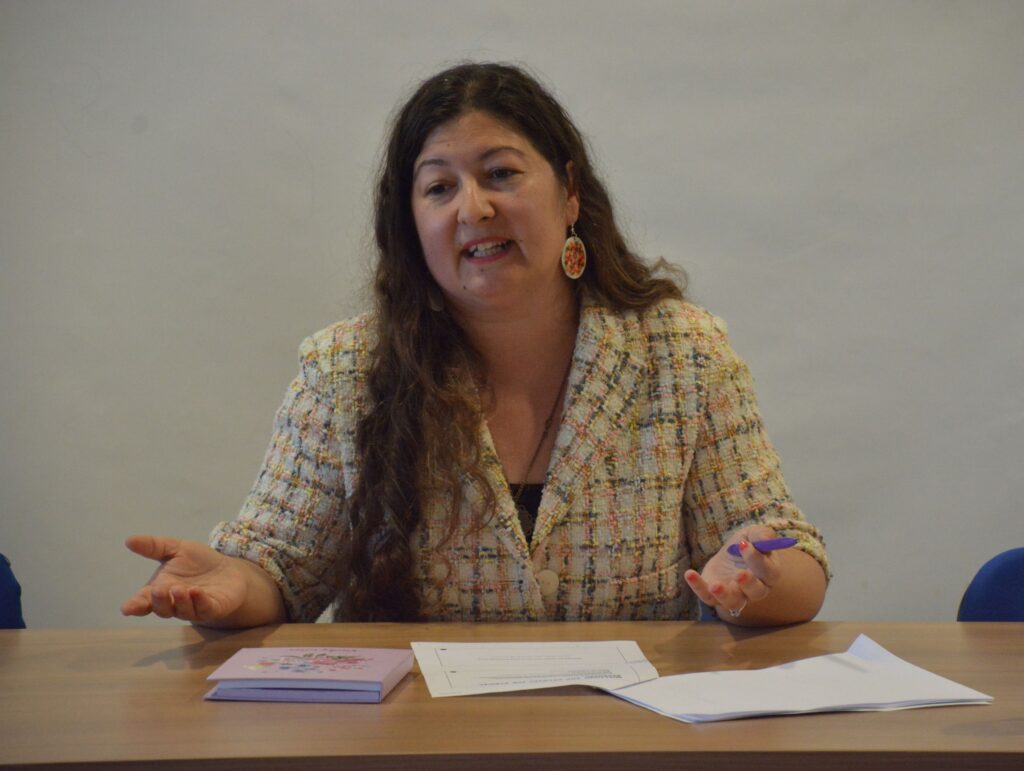
Prof. Dr. Zehra Altınay: “The concepts of education and ethics for higher education are two basic factors that should be put on the agenda.”
Making a presentation at the panel, Social Research and Development Center President Prof. Dr. Zehra Altınay stated that they carried out holistic studies in various fields and thus demonstrated examples of interdisciplinary cooperation. Prof. Dr. Zehra Altınay emphasized that interdisciplinary cooperation can be established with the respect that individuals show to each other and with correct and appropriate behavior within the framework of social values, business ethics and work ethics. Prof. Dr. Zehra Altınay said, “The concepts of education and ethics for higher education are two basic factors that should be put on the agenda in social sustainability and the ecological structure of institutions.”
Stating that they aim to carry out collaborative projects and advocate for the greater dissemination of ethics and education in higher education, Prof. Dr. Altınay said, “We need to support each other by taking into account ethical rules and violations, the existence of a margin of error, their connection with quality, and our corporate identity.” Prof. Altınay also touched upon the ethical principles in the research process and stated that research forms are effective in protecting the rights of participants and providing a more reliable research environment.
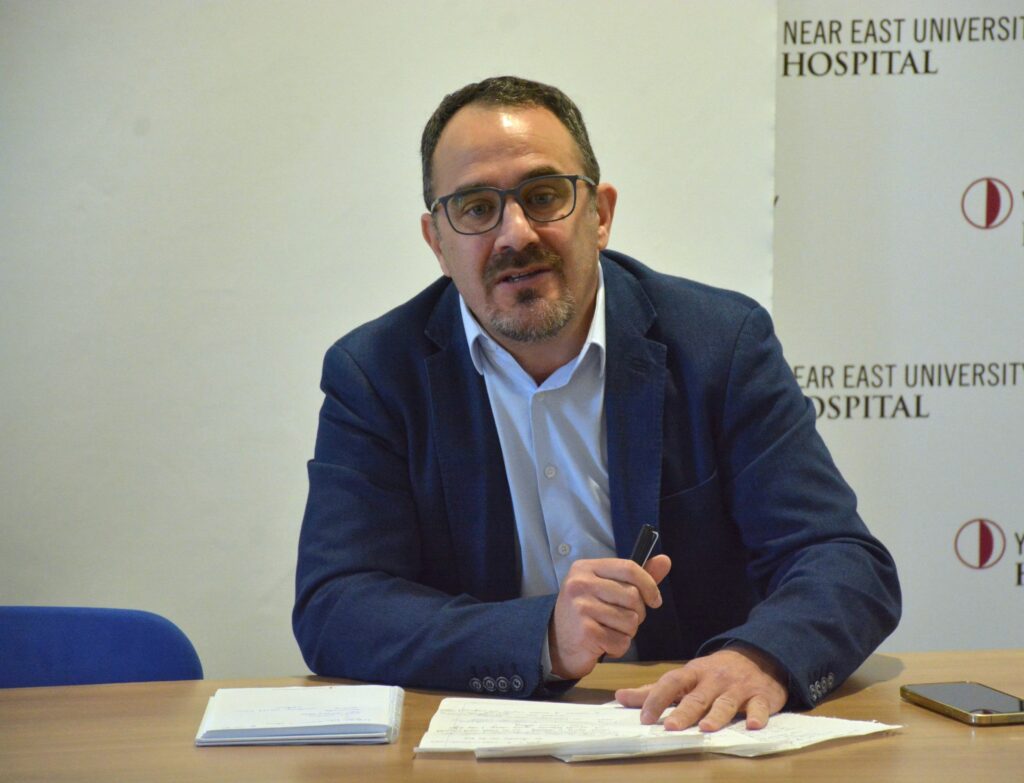
Assoc. Prof. Dr. Sait Akşit: “With changing global problems, interviews and research based on interviews have gained more importance.”
The last presentation of the panel was made by Assoc. Prof. Dr. Sait Akşit, Head of the International Relations Department of the Faculty of Economics and Administrative Sciences of Near East University and also Head of the Strategy and Energy Policies Research Center affiliated with the Center of Excellence. Assoc. Prof. Dr. Akşit started his speech by touching on the role of ethics in the production of free, reliable and responsible knowledge and stated that people sometimes push ethical factors aside because they feel under pressure and are concerned about their existence. Assoc. Prof. Dr. Akşit emphasized that with changing global problems, interviews and research based on interviews have become more important. Akşit, however, pointed out that there are different attitudes regarding the interview processes. Assoc. Dr. Akşit stated that in studies conducted in the fields of migration and conflict, it is almost impossible to find a sterile, well-structured environment in which the interviewee feels completely safe, as advocated by mainstream approaches. Stating that there are cautious approaches in human-based research, Assoc. Prof. Dr. Sait Akşit emphasized that for reliable information, names with alternative viewpoints and stances should be included in the research and confirmed. Assoc. Prof. Dr. Akşit emphasized that the subjective dimension of knowledge production comes to the fore and stated that in addition to the researchers’ institutional responsibility within the framework of ethical values, they also have a responsibility towards the interviewees and the researchers in their own research field to convey the information honestly and morally.
